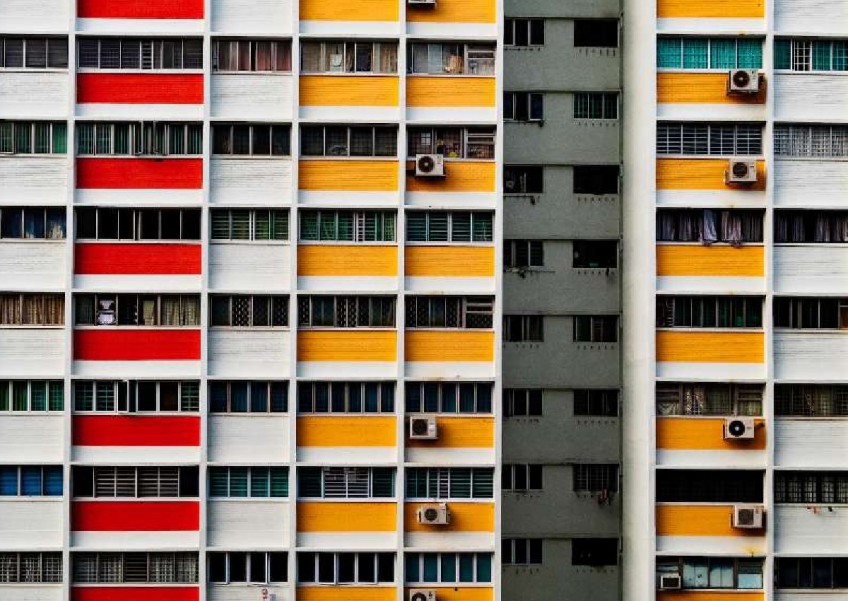Home sweet rental: An insider's guide to renting in Singapore


Finding a place to rent in Singapore may not be as daunting as the horror stories suggest. In fact, I've comfortably settled in my current pad for several years, free from any rental-related nightmares (thankfully). The path to uncovering this gem was no walk in the park, but it was all worth it in hindsight.
If this is your first time venturing into the unknown world of renting, check out our handy pointers that will land you your dream (temporary) home in no time!
Let's start with the basics - your budget! Unfortunately, Singapore isn't exactly known for its rental affordability. Think about how much you're willing to shell out each month without surviving on instant noodles. Make a list of your preferred locations and search through the average rental prices on your preferred property website.
You'll also want to list your must-haves and dealbreakers. This would help narrow down your options. For instance, air conditioning might be a non-negotiable, but a balcony, not so much. It's all about compromise. My list included a master bedroom (yay to en suite bathroom!), a nearby MRT station to get to work, and a hawker centre within walking distance (because who can resist cheap cai png?)
Do you need to engage a property agent? While this may be the norm when it comes to buying a place, the same usually can't be said for rental homes.
If you're unfamiliar with our Lion City, and can't make head or tail of the difference between, oh, Punggol and Bishan, then perhaps hiring an agent is your best bet. The agent can guide you when it comes to dealing with landlords, recommend properties based on your budget, and help schedule viewings.
Of course, agents don't work for free. If they have a co-broking arrangement with the landlord's agent, then you heng ah. But if they are working for you exclusively, then you need to agree on a fee upfront. Personally, I opted not to use an agent because I had a clear vision of what I wanted, and the user-friendly property websites made it a breeze to find potential homes.
Most HDB and condo units and rooms come fully furnished, right down to the study desk and cupboard. Others might offer a more minimalist look, with just the essentials. It all depends on your preference and needs. Some things to consider include:
Before committing to anything, do a thorough recce of the place and the surrounding neighbourhood. Are there any grocery stores, hawker centres, or boba shops nearby? And don't forget about accessibility to public transport - you probably don't wanna fork out hundreds in Grab fare per month.
It goes without saying, but don't sign your name on the dotted line for the first place you view. Stay firm and resist any pushy closing tactics from the agent or landlord politely. Sure, it might tick all the boxes in your list, but do keep an open mind and check out several places before zeroing in on a place so that you'll have no regrets.
You gotta make sure your rented home is in tip-top shape. During the house viewing, channel your inner Sherlock Holmes and keep an eagle eye out for any potential defects. Are there leaky faucets? Cracks in the wall that give you the creeps? Or worse still, mould?! Don't be shy about pointing these out to the landlord.
Remember, you're about to be their tenant, and you deserve a place that's in good condition. Request that they rectify these issues before you move in. It'll save you from a whole lot of trouble down the line. Additionally, you should take a photo of these defects in case of a future dispute once your lease term ends.
Oh, and before you sign the tenancy agreement, look out for unfair terms, caveats and loopholes. You want to make sure you're covered and be absolutely clear about what you are getting yourself into.
If it feels incredibly sus during the viewing, or the place just screams "bad vibes", don't just brush it off. Maybe the landlord seems a bit sketchy, or the neighbours are giving off creeper vibes as they stare at you. Always trust your gut instinct. Better for you to keep searching for a new place than get locked in a tenancy contract from hell.
When I was hunting for my current pad, I stumbled upon an HDB unit that seemed perfect on paper. But something just didn't feel right when I arrived for the viewing. The neighbour's constantly barking dog and the landlady's pushy demeanour to get me to sign the tenancy agreement on the spot was the final nail in the coffin for me. Thankfully, I dodged that bullet and found my current place shortly after.
ALSO READ: Rent in Singapore: How much to a room or whole unit in Singapore (2023)
This article was first published in Wonderwall.sg.